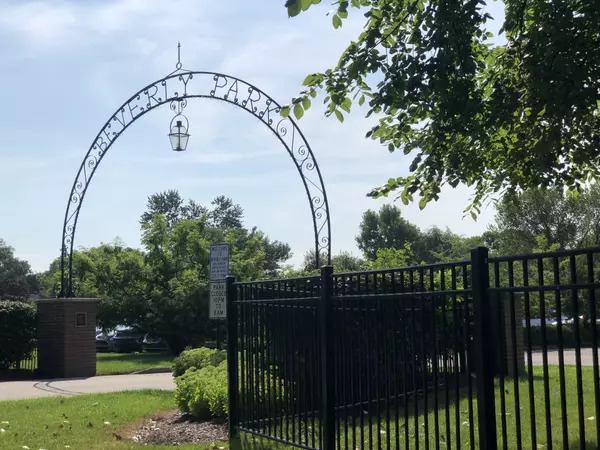Probate: Understanding the Role and Responsibilities of a Personal Representative in Michigan

Navigating the responsibilities of a Personal Representative (also known as an Executor) during probate can be overwhelming, especially while dealing with the loss of a loved one. As an expert in probate real estate, my goal is to provide you with a clear understanding of what probate entails and what your duties will be.
What is Probate?
Probate is the legal process through which a deceased person’s debts are paid and their assets are distributed to their heirs and beneficiaries according to their will. If they did not leave a will, the deceased person’s debts are paid and assets, including the deceased’s home, distributed by Michigan law. Probate court is a public court process that begins with filing the will with the probate court. This process ensures that the deceased’s financial affairs are settled in a legally binding manner, providing a structured way to distribute assets, pay off debts, and handle any disputes that may arise.
Does a Will Avoid Probate?
A common misconception is that having a will avoids probate. This is not true. A will must be filed with the court, initiating the probate process. Once the probate court validates the will, the will guides the transfer or sale of the deceased’s home, including a house or condo. The will acts as a roadmap for the probate court, detailing how the deceased wished their estate to be handled. However, even with a will, the estate must still go through probate to ensure the instructions are followed correctly and legally.
The Role of a Personal Representative
In Michigan, the individual responsible for managing this process is known as the Personal Representative. The terms Personal Representative and executor are used interchangeably in Michigan, but in other states, the terminology might differ. The role of Personal Representative involves managing and distributing the deceased's estate, including debts, investments, bank accounts, and property.
How is a Personal Representative Appointed?
Typically, the will names the Personal Representative. If no will exists, you can petition the court to serve as the Personal Representative. If not named, the court appoints someone based on priority:
1. Surviving Spouse (if a beneficiary): If the deceased person was married and the spouse is a beneficiary in the will, the spouse typically gets first priority.
2. Other Will Beneficiaries: If there is no surviving spouse or the spouse is not willing or able to serve, other beneficiaries named in the will are considered.
3. Surviving Spouse (if not a beneficiary): Even if the spouse is not a beneficiary, they might still be given priority if they wish to serve.
4. Other Heirs: If no suitable beneficiaries are found, other heirs may be appointed.
5. Creditors: In some cases, a creditor may be appointed with the court's approval.
It's important to note that being named as a Personal Representative is both an honor and a significant responsibility. The role of Personal Representative requires a thorough understanding of the deceased's wishes, as well as a commitment to managing the estate fairly and efficiently.
Responsibilities of a Personal Representative in Michigan
As a Personal Representative, you have several key duties:
1. Carrying Out the Deceased’s Wishes: Distribute the estate according to the will.
2. Locating Assets: Identify and secure all assets including real estate
3. Paying Creditors: Notify and pay off any debts
4. Preparing an Inventory: Document all estate assets including real estate.
5. Paying Estate Expenses: Pay any necessary or incurred costs and expenses.
6. Closing the Estate: Finalize the process and distribute remaining assets.
Let’s delve into these responsibilities in more detail:
Carrying Out the Deceased’s Wishes
Your primary duty as a Personal Representative is to ensure that the deceased’s wishes, as expressed in their will, are fulfilled. This includes distributing assets to the named beneficiaries and handling any specific bequests or instructions. This responsibility requires a thorough understanding of the will and meticulous attention to detail to ensure that all instructions are followed precisely.
Locating Assets
One of your first tasks as Personal Representative will be to locate and secure all of the deceased's assets, including the deceased’s home. This includes real estate, bank accounts, investments, personal property, and any other items of value. It may involve going through personal records, contacting financial institutions, and possibly even searching the deceased’s home. Ensuring all assets are accounted for is crucial to properly managing the estate.
Paying Creditors
Before any assets can be distributed to beneficiaries, all outstanding debts must be paid. This includes notifying creditors of the death, verifying the validity of claims, and using estate funds to settle these debts. It’s important to handle this step carefully to avoid any legal complications and ensure that the estate is not left with unpaid obligations.
Preparing an Inventory
As Personal Representative you are required to create a comprehensive inventory of the estate’s assets. This inventory should include detailed descriptions of all property, accounts, and investments, along with their estimated values. For the deceased’s house or condo, you may want to get an Equity Review Report showing you the current market value of the deceased’s home. This inventory must be filed with the probate court and is an essential part of the probate process. Accurate and complete records are vital to maintaining transparency and accountability.
Paying Estate Expenses
Managing an estate as a Personal Representative involves various expenses, including legal fees and court costs. The Personal Representative will have to manage costs related to maintaining the deceased’s home. Other expenses the Personal Representative will have to incur include preparing the house or condo for sale and all cost associated with the selling the deceased’s house or condo. All expenses must be paid from the estate’s funds before any distributions can be made to beneficiaries. Keeping detailed records of these expenses will help ensure that the estate is managed efficiently and transparently.
Closing the Estate
Once all debts and expenses have been paid, and all assets have been distributed according to the will, you will need to close the estate. This involves filing a final accounting with the probate court, showing how the estate was managed and distributed. Once the court approves this accounting, you can distribute any remaining assets to the beneficiaries and formally close the estate.
Important Dos and Don'ts for Personal Representatives
Do Not:
1. Act Prematurely: You can only act after the will's creator has passed away.
2. Sign the Will: An unsigned will is invalid; the estate follows Michigan intestacy laws if the will is unsigned.
3. Sell Assets Below Market Value: Ensure all assets are sold at fair market value to fulfill fiduciary duties.
4. Alter the Will: As a Personal Representative you cannot change any will provisions.
5. Dissuade Will Contests: Allow interested parties to contest the will if they choose.
Do:
1. Secure the Estate: Gain access to and secure all properties and assets.
2. Communicate with Heirs: Keep heirs informed about the probate process.
3. Inventory Assets: Document all assets, including bank accounts, investments, real estate, and personal property.
4. Pay Off Debts: Settle any outstanding debts, including the deceased’s mortgage on their home, if any, before distributing the estate.
5. Keep Accurate Records: Maintain detailed records of all transactions and expenses related to the estate.
6. Distribute the Estate: Sell necessary assets to cover debts and distribute the remaining assets to heirs.
Serving as a Personal Representative is a significant responsibility that requires careful attention to detail, a clear understanding of the probate process, and a commitment to managing the estate fairly and efficiently. By understanding your duties and seeking professional guidance, you can navigate this challenging role successfully and honor the wishes of your loved one.
Seeking Professional Guidance
The probate process in Michigan can be complex and challenging. It’s advisable to consult a qualified probate attorney to ensure all legal requirements are met. A professional can provide valuable guidance and help you navigate the intricacies of probate, ensuring that the process is handled efficiently and legally.
Join Our Live Online Event
Regularly we host a Live Online Event You’re a Personal Representative. Now What? Register today at ProbateEvent.com to join the next event. This event will provide you with valuable information on how to manage your duties as a Personal Representative in a stress-free, effective way.
For assistance with probate real estate, visit https://higginspartners.com/probate-realestate. Jeff Higgins and his team specialize in serving the five-county Metropolitan Detroit area of Oakland, Macomb, Livingston, Washtenaw, and Wayne. Through their extensive partner network, they service the entire state of Michigan, providing expert guidance and support during this challenging time.
Contact Us
For personalized advice and professional assistance, contact Jeff Higgins and his team today. Let us help you navigate the complexities of probate real estate with compassion and expertise. We are committed to making this process as smooth and stress-free as possible for you and your family.
Disclaimer
Jeff Higgins is a professional licensed real estate agent in the state of Michigan. The purpose of this blog is to share information from the perspective of a real estate professional in the State of Michigan. This blog should not be construed as legal advice or used as legal advice in any way. Please consult a qualified probate attorney for legal questions surrounding the probate process. If you do not have a probate attorney, Jeff Higgins and his team are happy to connect you with one of their preferred probate attorneys. Please email Jeff Higgins at jeff@higginspartners.com for more information.
Categories
Recent Posts










GET MORE INFORMATION
Managing Partner | License ID: 6506046014
280 North Old Woodward Avenue, Suite 100, Birmingham, MI, 48009, United States
